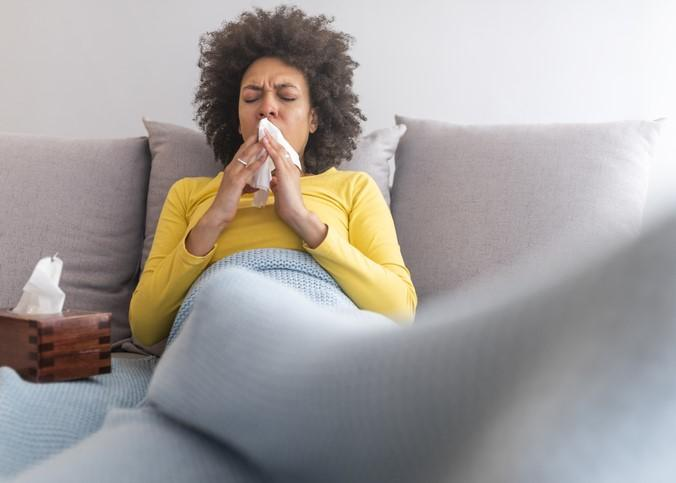The threat of respiratory viruses is causing anxiety among US adults this fall, a third of whom say they worry that they or a family member will catch COVID-19, flu, or respiratory syncytial virus (RSV) in the next 3 months, finds a new survey from the Annenberg Public Policy Center (APPC) of the University of Pennsylvania.
Researchers fielded the Annenberg Science and Public Health Knowledge survey to 1,559 adults from October 5 to 12, 2023. It was the 13th survey of the nationally representative panel since April 2021 and has a margin of sampling error of plus or minus 3.4 percentage points at the 95% confidence level.
When asked which virus is most likely to cause severe illness, 22% of respondents said COVID-19, 13% said RSV, 7% said flu, 41% said they are equally likely to cause severe disease, and 16% said they were unsure.
Key current survey results compared with previous waves:
COVID-19
- Of respondents, 35% are worried that they or someone in their family will get COVID-19 in the next 3 months, up from 21% in August 2023 but similar to last winter (36% in January 2023); 65% are not worried.
- More people said they likely won't receive the COVID-19 booster than said they would get it (44% vs 40%).
- About half of respondents said they were likely to have their child receive the COVID-19 booster this fall. Over half (52%) said that if someone in their family aged 65 or older were eligible for the booster, they would recommend it, compared with 39% who said they are unlikely to do so.
RSV
- A total of 35% said they worried that they or a family member will contract RSV in the next 3 months, up from 32% in January 2023; as with COVID, 65% are not worried.
- Over half (55%) of respondents said they would likely recommend that an older friend or family member discuss the RSV vaccine with their healthcare provider, a statistically significant decline from 61% in August 2023.
- When told that the Centers for Disease Control and Prevention (CDC) recommends the RSV vaccine for pregnant women to help protect their infants, 45% of participants said they wouldn't recommend it, and 43% said they would. This was the first time the question was asked in this form.
- More people know there is a Food and Drug Administration–approved RSV vaccine for older adults (42%, up from 23% in August and 13% in June), while 53% are unsure.
Flu
- Of all participants, 39% said they worried about catching the flu, which is statistically unchanged from January 2023. Six in 10 people (61%) were unworried.
Because getting a flu shot yearly not only helps to protect us from serious infection but also predicts our acceptance of other CDC-recommended vaccines, the drop in reported flu vaccination we see reflected in our panel is worrisome.
- Over 1 in 5 respondents (21%) said they had been vaccinated against flu this season, compared with 26% in mid-October 2022 and 38% in the second week of November 2021.
- Most (79%) knew the flu vaccine's effectiveness varies from year to year. Fewer respondents said the current flu shot is effective at reducing the risk of flu this year (65%, down from 73% in January 2023), and 71% said the current vaccine helps cut the risk of severe flu (down from 77% in January).
- Two thirds (66%) of participants knew that the seasonal flu and COVID-19 vaccines can be co-administered, and 30% incorrectly stated there is no treatment for the flu, up from 23% in January 2023.
- Most (61%) of those surveyed correctly disagreed with that there's no longer a need to get the flu vaccine because the antiviral drug oseltamivir (Tamiflu) is available, down from 65% in January 2023.
- A total of 78% said they receive the flu vaccine every year. "Because getting a flu shot yearly not only helps to protect us from serious infection but also predicts our acceptance of other CDC-recommended vaccines, the drop in reported flu vaccination we see reflected in our panel is worrisome," Kathleen Hall Jamieson, PhD, director of the APPC and the survey, said in the news release.


















